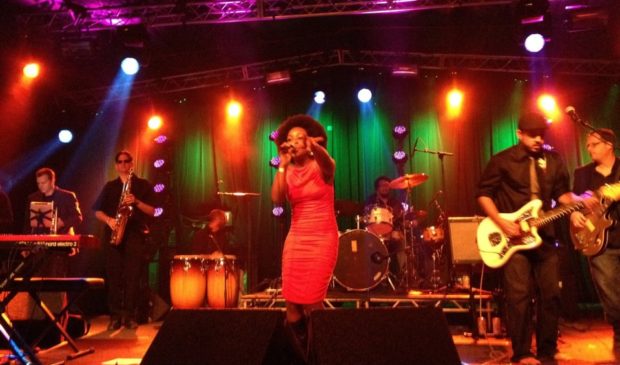City lays out diversity goals in next round of arts, tourism funding
Friday, December 18, 2020 by
Chad Swiatecki Groups that have been historically overlooked and underrepresented in the city’s cultural community will have priority in the Economic Development Department’s spending for cultural and tourism programs in the next budget year.
During an online meeting held last Saturday, the heads of three EDD divisions that allocate money from the Hotel Occupancy Tax – Heritage Tourism, Music and Entertainment, and Cultural Arts – discussed a variety of new programs that will emphasize diversity and inclusion in their award decisions.
The presentation was the latest in a series of input and planning sessions that will shape the official policy for the programs, with EDD expected to present basic guidelines to the public by the end of January.
From the outset, city officials explained that applications from Black and African American, Native American, Asian, Hispanic/Latino, Middle Eastern, Pacific Islander, LGBTQ and disability communities are of special interest for funding, with the goal of increasing opportunities and presenting those perspectives to tourists.
“We know Austin is a diverse and culturally rich city, so the artistic and creative content we’re seeking to pull up, highlight and elevate is born of the ability for artists to create a sense of belonging for so many … and for that inclusion to include more stories and perspectives of those people who have made Austin the culturally rich place that it is,” said Meghan Wells, manager of the Cultural Arts Division.
“Historically we’ve not had a platform to share that with the broader community and our tourists to continue to add to the identity we have as a city.”
Each department is either adapting existing funding programs or creating new ones specifically to address the need for diversity that the Arts Commission and other stakeholders have asked the city to highlight.
The total amount of funding for each program is unclear in some cases because the hotel tax revenue projections are still being determined, but individual award caps and initial criteria have been outlined.
Heritage Preservation grants of up to $250,000 over a two-year period will direct city funds to cultural landmarks in need of preservation or restoration, with first-time applicants and underserved communities receiving special consideration.
Melissa Alvarado, director of Heritage Tourism, said there has been a shift in project types in the second year since the division revamped its grant process, with roughly 70 percent of recent applications seeking money for planning and education purposes instead of capital expenses.
Cultural Arts is adding three programs to its existing Tempo program, which will have a maximum award amount of $250,000 in the next budget.
The Nexus program has a defined budget of $500,000 and award amount of $3,000-$6,000, with the intent of creating public art projects through collaboration between cooperating groups. The Elevate program will allocate awards of $10,000-$100,000 to fund the creation of culturally minded activities and events.
And the Thrive program will provide two-year contracts of $50,000-$175,000 per year to arts organizations that support opportunities for historically underserved communities.
The Music and Entertainment Division is working on the debut of its Live Music Fund, which will provide up to $50,000 per one-year contract to pay for the creation of live or virtual concerts that can be marketed to local music fans and visitors.
Erica Shamaly, manager of the Music and Entertainment Division, said program awards will prioritize artists and groups that seek to increase diversity in the local music economy.
“Because this is a new program, we’d like to see more diversity within our industry in terms of leadership and staffing and different venues,” she said. “We want to see projects that bring different voices, curators and talent buyers, and collaborators to come together in different ways to create shows. There are ways to create collaborations and market to our tourist audiences to create many new kinds of events.”
View the entire presentation below:
Download (PDF, 1022KB)
Photo caption: Austin-based vocalist, songwriter and bandleader Akina Adderley performs with the Vintage Playboys.
The Austin Monitor’s work is made possible by donations from the community. Though our reporting covers donors from time to time, we are careful to keep business and editorial efforts separate while maintaining transparency. A complete list of donors is available here, and our code of ethics is explained here.
You're a community leader
And we’re honored you look to us for serious, in-depth news. You know a strong community needs local and dedicated watchdog reporting. We’re here for you and that won’t change. Now will you take the powerful next step and support our nonprofit news organization?









